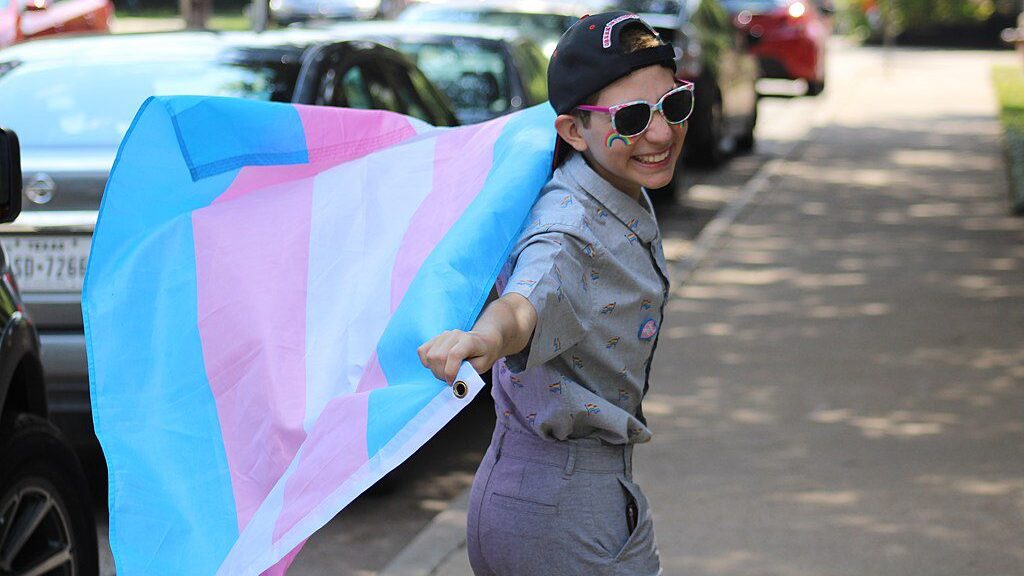After two years of investigation, Britain’s Charities Commission identified serious problems with the administration of one of the most high-profile—and notorious—’trans youth’ organisations. A 22-page report published on Thursday, October 24th, instructed Mermaids, founded in 1995, to remove medical advice to children from its website.
The investigation began in September 2022, when the Telegraph revealed that teenage girls were being given chest binders, a potentially harmful device for constricting their breasts, by the organisation without parental consent. Likewise, Mermaids’ online statements presented puberty blockers as “an internationally recognised safe, reversible healthcare option”—which the recent Cass Review found to be nothing of the sort.
Charities Commission rules, backed by child safeguarding concerns, mean that the charity has been asked to remove misleading content from its website. Critic of transgender ideology Graham Linehan recognised the significance of what he called the inquiry’s inevitable conclusions:
Charities that provide educational information have a legal responsibility to ensure that information is accurate, evidence-based, and balanced. Mermaids’ failure to clearly identify the purpose of its information about puberty blockers potentially put the charity in violation of these legal requirements.
In contrast, BBC coverage of the Commission ruling appears to downplay the seriousness of the 62 public complaints against the charity, saying it “found no evidence that Mermaids … provided medical advice, which would have been outside its charitable purposes” and found “no evidence of misconduct.” This obscures the difference between general medical advice published on the organisation’s website and addressing individual ‘patients’ directly. After virtually ignoring the Cass Review, the BBC’s broadly sympathetic coverage of Mermaids’ latest setback indicates that its capture by transgender ideology continues apace.
Amid controversy, but with the support of the UK broadcast media, Mermaids has continued to expand. Now claiming to work with 10,000 people annually, its income went from almost £84,000 (€100,950) in 2016, to almost £2.3m (€2.76m) last year. Under UK law, charitable status—and the associated tax benefits for these funds—is at risk if a charity violates its own constitution. Likewise, each individual charity’s constitution should reflect various national regulations, such as restrictions on providing consistent support for a single political party.
Charities appoint a board of trustees to prevent such problems, but as Mermaids expanded, because of misguided parents and a burgeoning ‘transgender trend’ in UK schools, it claimed to have suffered from a high turnover of suitable trustees (which the current chair of Mermaids, Kathryn Downs, treats as a sign of the group’s success). The case of former trustee Dr. Jacob Breslow—who resigned in 2022 after he was found to have addressed a 2011 pro-paedophile conference where he spoke up for ‘minor-attracted persons’—points to the organisation’s wider problems.
Breslow’s personal website claims his research
brings together critical race, trans, feminist, queer, critical migration, and psychoanalytic theories to explore the role of childhood in shaping and challenging the disposability of young black life, the steadfastness of the gender binary, the queer life of children’s desires, and the precarious status of migrants.
Such verbiage did not prevent the Charities Commission from saying Mermaids should “never have appointed” him as a trustee. Unfortunately, former chief executive Susie Green (January 2016 until 25 November 2022) does not appear to have raised any red flags with the Commission—despite taking her eldest son to Thailand to have his genitals removed (‘gender affirming surgery’ in the jargon) on his 16th birthday.
This is not Mermaids’ first public interaction with the regulator; it also initiated an unsuccessful lawsuit aimed at stripping the LGB Alliance—an advocacy group for same-sex attracted people—of its charitable status.





